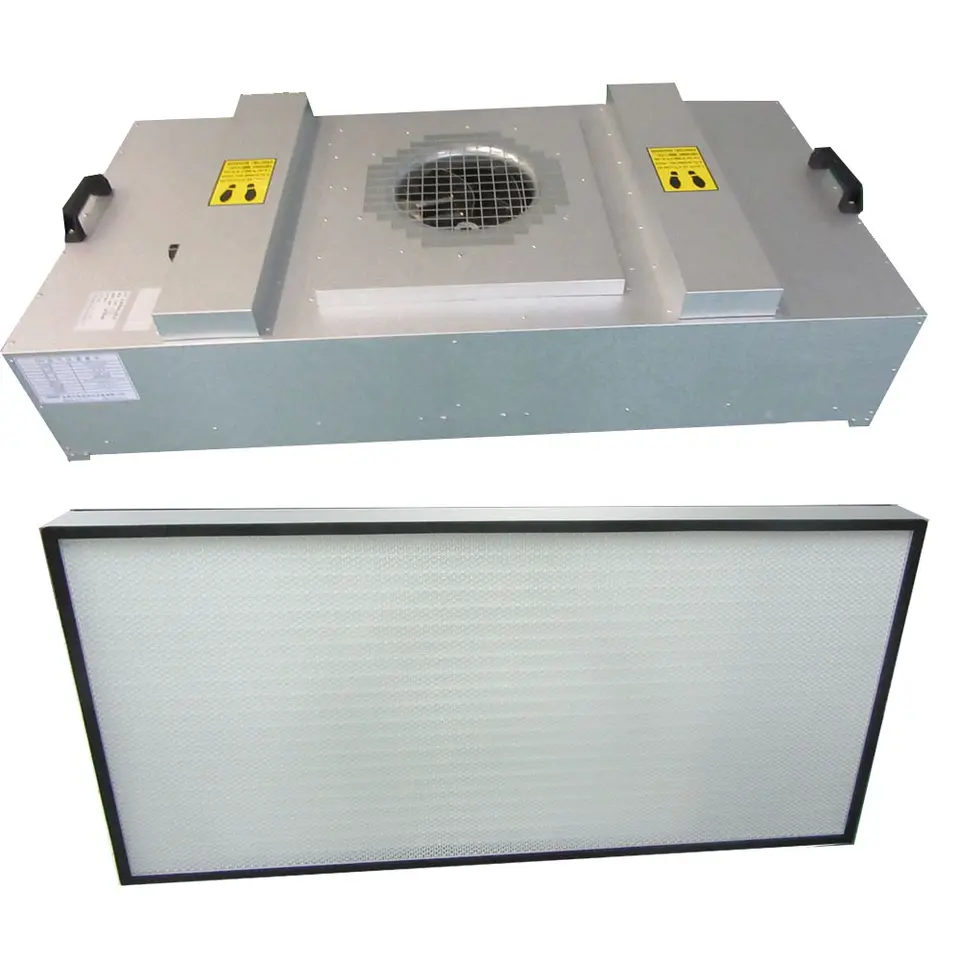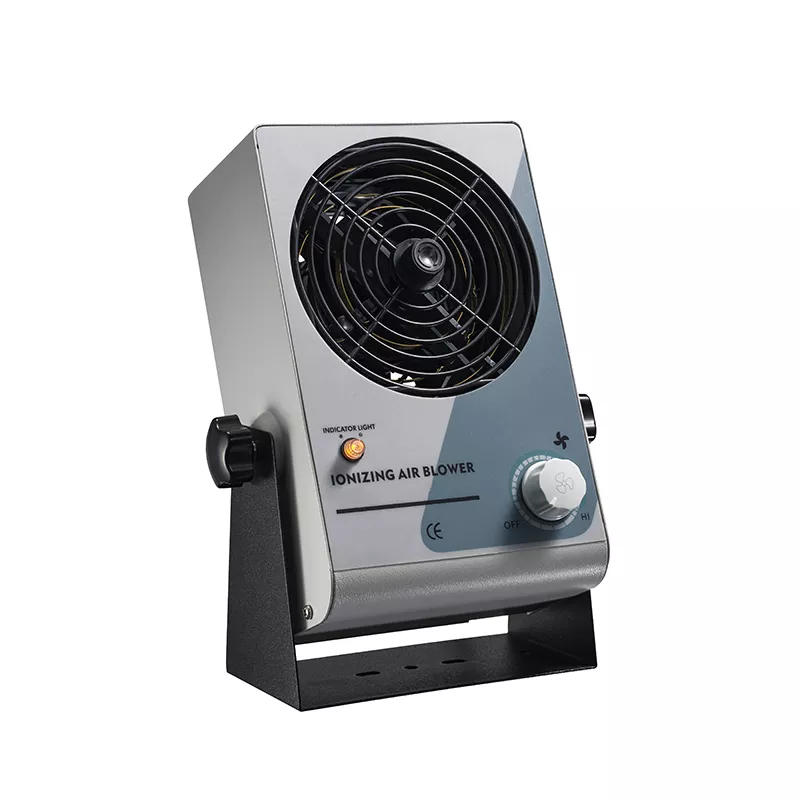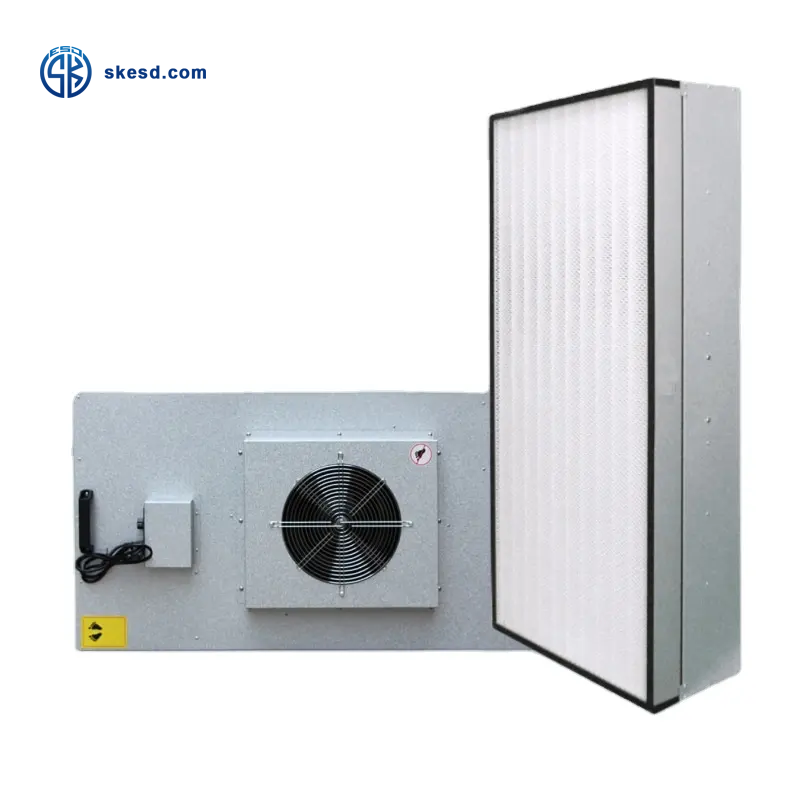Achieving optimal airflow is essential for maintaining clean and controlled environments in industries such as cleanrooms, laboratories, and manufacturing facilities. Fan Filter Units (FFUs) play a crucial role in airflow management, ensuring efficient air filtration, circulation, and contamination control. In this article, we will explore the importance of optimizing airflow with FFUs, key considerations for achieving maximum efficiency, and the benefits it brings to air quality and overall system performance.

Importance of Optimizing Airflow with Fan Filter Units:
Optimizing airflow with FFUs offers numerous advantages in terms of air quality, contamination control, and energy efficiency. It ensures that filtered air is evenly distributed throughout the space, minimizing stagnant air pockets and maintaining consistent air quality. By strategically managing airflow, FFUs help prevent the accumulation of contaminants, improve worker safety, and enhance the overall performance of critical processes.
Key Considerations for Achieving Maximum Efficiency:
- Proper Placement and Distribution: Careful placement of FFUs is crucial for achieving optimal airflow. Consider the room layout, equipment arrangement, and cleanroom class requirements when determining the positioning of FFUs. Distribute the units strategically to ensure uniform airflow and coverage across the entire space.
- Filter Selection and Maintenance: Selecting high-quality filters with appropriate efficiency ratings is vital for effective air filtration. Regular filter maintenance, including timely replacement and cleaning, is necessary to prevent clogging and maintain optimal airflow. Neglected filters can impede airflow, compromise filtration efficiency, and increase energy consumption.
- Balance Pressure Differentials: Maintain a balanced pressure differential between different areas within the controlled environment. This helps prevent the migration of contaminants from higher pressure areas to lower pressure areas, ensuring contamination control and maintaining desired air quality standards.
- Adjust Fan Speeds: Many FFUs offer adjustable fan speeds to cater to varying airflow requirements. Fine-tuning fan speeds based on specific needs helps optimize energy consumption while still meeting air circulation and filtration demands. Higher fan speeds may be necessary in environments with stricter cleanliness requirements, while lower speeds can be used during periods of lower activity.
- Minimize Airflow Interruptions: Minimize disruptions to airflow caused by obstructions, equipment placement, or improper room configuration. Maintain clear paths for air circulation and avoid hindrances that could lead to turbulence or inefficient airflow patterns. Regularly inspect the space and address any potential obstructions to ensure smooth airflow.
Benefits of Optimized Airflow:
- Enhanced Air Quality: Optimized Fan filter unit airflow ensures efficient air filtration, reducing the presence of contaminants and airborne particles. This significantly improves air quality, promoting a healthier environment for occupants and sensitive processes.
- Improved Contamination Control: Proper airflow management prevents the migration of contaminants and helps maintain the cleanliness of critical areas. By reducing the risk of cross-contamination, FFUs contribute to better contamination control and increased product or process integrity.
- Energy Efficiency: Optimizing Fan filter unit airflow can lead to energy savings by reducing unnecessary air circulation and fan usage. Fine-tuning fan speeds and maintaining balanced pressure differentials help minimize energy consumption without compromising air quality or system performance.
- Consistent Airflow Distribution: Optimized airflow ensures uniform air distribution throughout the controlled environment. This prevents stagnant air pockets, maintains consistent air quality levels, and supports the proper functioning of processes that require even airflow.
Optimizing airflow with Fan Filter Units (FFUs) is crucial for maintaining clean and controlled environments. By carefully considering placement, filter selection, maintenance practices, pressure differentials, and fan speeds, you can achieve maximum efficiency and reap the benefits of enhanced air quality, improved contamination control, and energy savings. Proper airflow management with FFUs contributes to the overall effectiveness and success of critical operations.
continue reading




